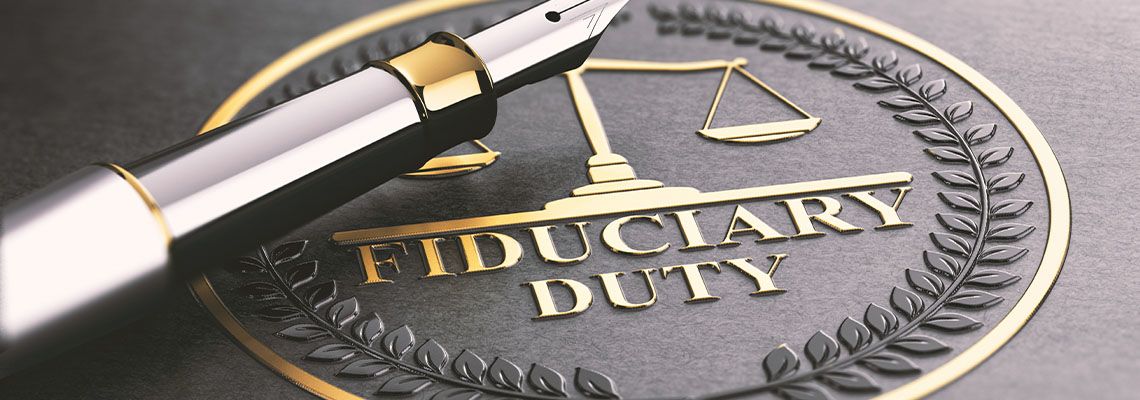
Fiduciary Duties and Misuse of Power of Attorney
Individuals appointed as fiduciaries have the legal and ethical responsibility to act in the best interest of the principal — the person who has granted them the power of attorney. This entails managing the principal's assets, avoiding conflicts of interest, and ensuring transparency in all transactions.
At Bond Law Office, we often encounter clients who need guidance on fiduciary duties. As legal professionals, we're well aware of the gravity of these responsibilities, especially when they pertain to a power of attorney (POA). When someone is entrusted with a POA, they are given a fiduciary duty. This duty hinges on a high standard of trust, loyalty, and good faith, requiring the fiduciary to prioritize the principal's needs above their own at all times.
The Role of a Power of Attorney
A power of attorney is a legal document that empowers an individual to take action on behalf of another person. This 'agent', also known as the attorney-in-fact, is endowed with the authority to make decisions in various areas (financial, legal, healthcare, and others) as if they were the principal themselves. The extent of this authority can range from broad to limited, depending on the terms specified in the POA document.
Power of Attorney Abuse
Regrettably, we've seen cases where the power granted by a POA is abused or misused. This happens when the agent uses their position for their own benefit or neglects the best interests of the principal. Such misuse of power can lead to severe consequences for the principal, causing both financial and emotional distress.
There are several forms of abuse associated with a power of attorney. We've compiled some examples to help you better understand these types of abuse.
Conversion
Conversion involves the unauthorized use or misappropriation of the principal's assets for personal gain. It could include stealing money, selling property without permission, or using their funds for personal expenses.
Fraud
Fraudulent abuse of power of attorney occurs when the agent deceives or manipulates the principal for personal gain. This could involve actions like forging the principal's signature, misrepresenting financial transactions, or embezzling funds.
Elder Abuse
Elder abuse refers to any form of mistreatment or harm inflicted on an elderly person. In the context of a power of attorney, elder abuse can occur when the agent takes advantage of the principal's vulnerability, neglects their care, or financially exploits them.
Breach of Fiduciary Duty
A breach of fiduciary duty happens when a fiduciary fails to act in the best interest of the principal. These breaches can occur in various scenarios, such as when a fiduciary acts negligently, engages in self-dealing, or fails to disclose relevant information to the principal.
The breach may not only be an act of commission but also of omission, where the fiduciary’s failure to act responsibly results in harm to the principal’s interests (in other words, both actions and neglect caused harm). Understanding the nuances of such breaches is critical for evaluating the integrity and legality of the fiduciary's actions.
Penalties for Breach of Fiduciary Duty
Penalties for a breach of fiduciary duty are designed to protect the principal's interests and to deter unethical behavior. They can include civil liabilities such as restitution, where the fiduciary must return or compensate for ill-gotten gains, or monetary damages to cover losses incurred by the principal.
In severe cases, a breach can lead to criminal charges, particularly if the action involves fraud, theft, or other criminal activities. Additionally, the fiduciary may face disciplinary action from professional bodies or disqualification from serving in any fiduciary capacity in the future.
The exact penalty will often depend on the specifics of the breach, the harm done, and the jurisdiction in which the case is adjudicated.
Limiting/Revoking a POA
If you suspect power of attorney abuse or want to prevent potential misuse, it's possible to limit or revoke a POA. You can create a new POA document with specific limitations or revoke the existing POA through legal procedures.
We always recommend consulting with an estate planning attorney to ensure you take the proper steps according to the applicable laws and regulations.
Legal Remedies for Misuse
Legal remedies are available for when the misuse of a power of attorney occurs. These may include filing a lawsuit against the agent for damages, seeking an injunction to prevent further abuse, or reporting the abuse to the appropriate authorities. The specific legal remedies will depend on the jurisdiction and the circumstances of the abuse.
Preventing the Misuse of a Power of Attorney
Preventing misuse of a power of attorney requires proactive measures. These may include carefully selecting a trustworthy agent, clearly defining the agent's powers and limitations in the POA document, regularly reviewing and monitoring the agent's actions, and involving other trusted individuals as co-agents or monitors.
At Bond Law Office, we understand the potential risks associated with a power of attorney. We are dedicated to offering comprehensive guidance and legal support to those facing issues related to fiduciary duties and the misuse of a power of attorney. Our experienced team is here to help you navigate these challenging situations and safeguard your rights and interests.
